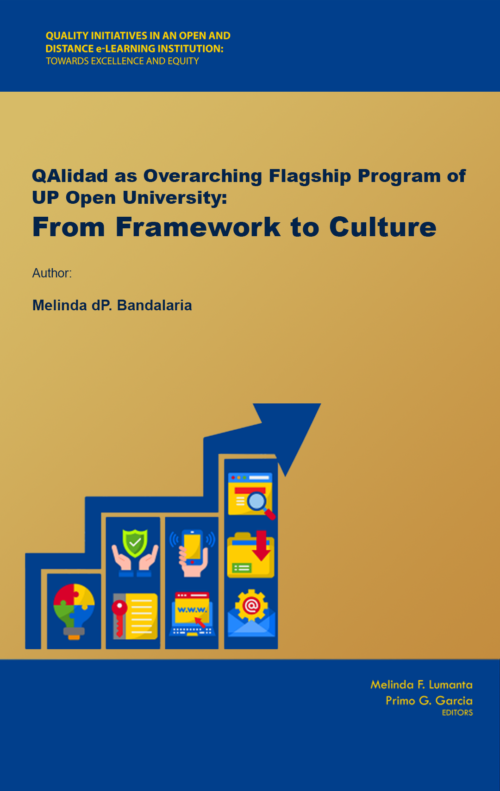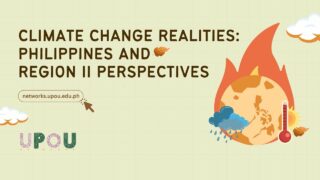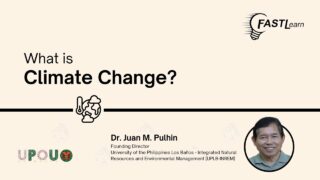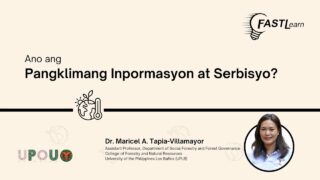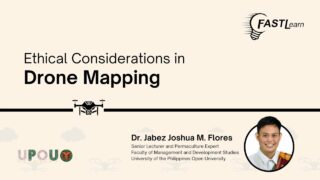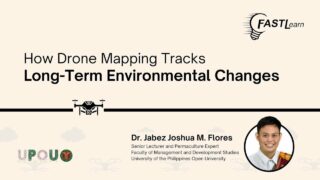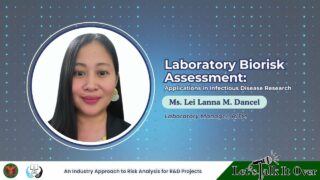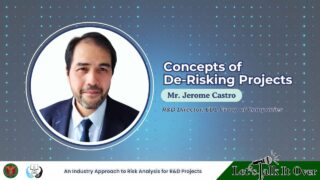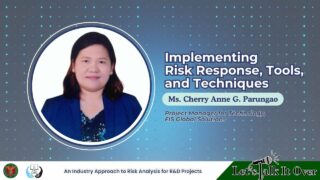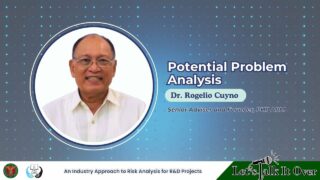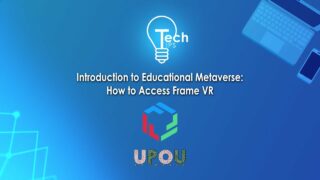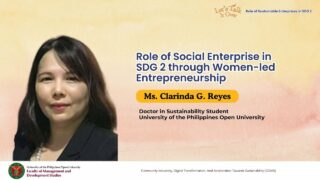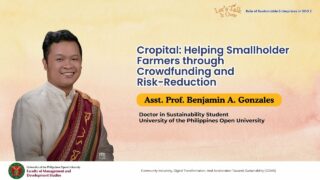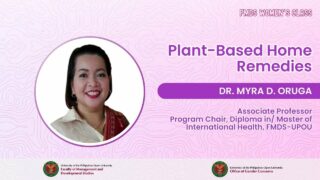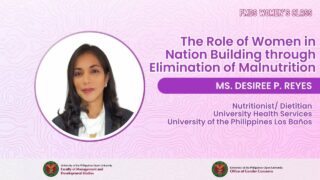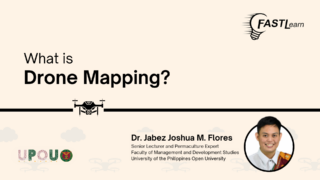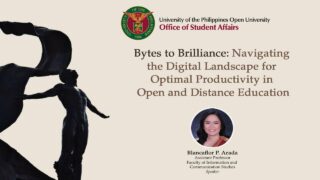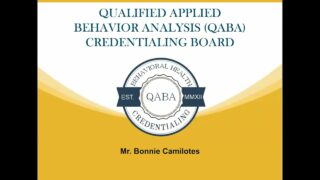At the center of the University of the Philippines Open University’s (UPOU) strategic plan is its flagship program QAlidad, which focuses on quality pillars in all aspects of the university’s operations in teaching, research, public service, and governance. In this chapter, the various quality assurance (QA) initiatives under this flagship program are described as part of the quality thrust of the university. The approach to quality assurance in education has been emphasized as a process that is iterative from a framework that is evolving to the integration of the quality pillars to regular operations, thus becoming an organizational culture.
Quality assurance (QA), in various literatures, ensures that all processes in higher education achieve the prescribed quality standards. By undergoing QA, higher education institutions (HEIs) assure their stakeholders of their first-rate products and services. As a pioneer open and distance e-learning (ODeL) institution in the Philippines, University of the Philippines Open University (UPOU) crafted its strategic plan for 2016-2019 committed to ensuring quality in all of its operations—teaching and learning, research and extension, public service, and governance.
UPOU began its strategic planning in 2016 through a participatory process involving all its constituents. With an overall vision of Pamantasang Bukas para sa Magandang Bukas, the strategic plan constitutes five strategic thrusts and 12 flagship programs. These are 1) Strategic Thrust 1: Inclusive, Flexible, and Innovative Teaching and Learning; 2) Strategic Thrust 2: Responsive and Socially Relevant Research and Innovation in ODeL; 3) Strategic Thrust 3: Public Service in ODeL; 4) Strategic Thrust 4: Participatory Administration and Governance; and, 5) Strategic Thrust 5: Quality Assurance in ODeL (Figure 1). Twelve (12) flagship programs ensure the attainment of the goals of the strategic thrusts. At the core of its strategic plan is UPOU’s flagship program QAlidad which pervades and inculcates quality culture in all of the university’s operations.
Figure 1
Five strategic thrusts
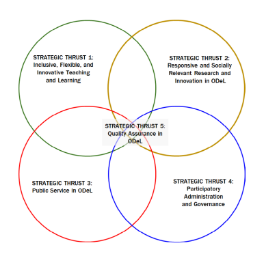
Strategic Thrust 1: Inclusive, Flexible, and Innovative Teaching and Learning
Strategic Thrust 1 focuses on teaching and learning that reaches out to all sectors in education, ensures no one is left behind and learners’ capabilities are fully developed, and ensures flexible learning through responsive education in pace, place, and mode of delivery. Three (3) flagship programs are aimed at achieving the stated objectives. Flagship Program @ccess ensures the accessibility of UPOU’s formal programs that cater to a diverse student population, Flagship Program Flexible Learning Experience (FLEx) provides multiple pathways through a UPOU education, and Flagship Program Innovative Teaching and Learning (InnovaTE) promotes and adopts/adapts innovative technology-supported teaching methodologies in support of effective learning.
Strategic Thrust 2: Responsive and Socially Relevant Research and Innovation in ODeL
To strengthen UPOU’s role as a research university, Strategic Thrust 2 aims to contribute to the theoretical foundations of ODeL, promote effective ODeL practice, respond and relate to the needs of sectors crucial to social development, and promote multiple epistemological and methodological orientations to advance knowledge in the disciplines. Flagship Program Saliksik, the sole flagship program under this strategic thrust, intends to improve ODeL research productivity and impact and provide significant contributions to research and innovation in priority social development fields through state-of-the-art studies in ODeL, leading-edge policy and applied research in ODeL and priority disciplines, high-impact academic publications, and research-based ODeL policy and practice within and beyond UPOU.
Strategic Thrust 3: Public Service in ODeL
Strategic Thrust 3 constitutes UPOU’s public service that is aimed towards a broad range of continuing professional education programs, leadership in the promotion of critical digital literacy, promotion of public discussion of critical social issues and participation in social mobilization, and technical assistance to higher education institutions, local governments, people’s organizations, and civil society in ODeL and social development research and innovation.
Flagship programs under this strategic thrust include Flagship Program openUP to broaden access to continuing education and lifelong learning through the design and delivery of open online courses; Flagship Program PLAZA to take a leadership role in the promotion of critical digital literacy nationwide; Flagship Program UPOU Connected to promote public discussion of critical social issues, participate in social mobilization, and disseminate research results and knowledge products; and Flagship Program Mission RA10650 to fulfill UPOU’s role as specified in Republic Act 10650.
Strategic Thrust 4: Participatory Administration and Governance
Strategic Thrust 4 highlights administration and governance that promotes sustainable, effective, and efficient operation, participatory governance, and wellness. Flagship programs Care UPOU and TAYO ensure sustainable operations and promote participatory governance and health and wellness within UPOU, respectively.
Strategic Thrust 5: Quality Assurance in ODeL
Strategic Thrust 5 supports UPOU’s mission and vision to provide a quality education through QA in ODeL. It includes instilling QA culture and establishing an effective QA system for ODeL. The QAlidad is the sole flagship program under Strategic Thrust 5. This flagship program is strategically placed at the center of UPOU’s strategic plan to permeate all of the university’s operations.
Initiatives under this flagship program are expected to contribute towards the continuous improvement of teaching, research, public service, and governance, keeping in mind that it is the learner’s learning experience that is at the core of the university’s initiatives and operations. It aims to establish a QA culture and to promote and model QA in ODeL. Its components include the development of a QA framework, appropriate QA approach, and system implementation.
The development of a UPOU QA Framework highlights the QA thrust of the University. Given UPOU’s unique position as an ODeL institution grounded by its philosophy of openness, equity, and accessibility, existing QA Frameworks were deemed inappropriate. Hence, UPOU embarked on developing a QA Framework not only for the university but for other open university institutions as well. Activities under the QA approach component involve codification of the academic process. This includes roundtable discussions on assessment, a forum on the UP’s internal academic assessment system, meetings on several academic issues (i.e., faculty development, research productivity), QA projects, and curricular programs and course offerings, and staff development training. These codified academic processes will be integrated into the framework. UPOU’s leadership in national and international organizations, as well as awards and recognitions in various presentations, publications, and public service highlight its QA System Implementation.
UPOU conducted and continues to undertake various QA research and initiatives to define and redefine pillars and indicators of quality as well as the process to achieve the set standard for these indicators. Backed by ongoing research using desk review on QA, survey among experts and practitioners, and focus group discussions among UPOU staff, UPOU’s QA framework continues to evolve. The quality areas include: (1) academic programs (consisting of program level, course materials or packages, and even open education resources [OERs] or the learning materials that the university is producing), (2) the research that the university is conducting, (3) learner support, (4) faculty and staff development, and (5) public service.
The public service aspect emphasizes the university’s social responsibility. Under this aspect are (1) stakeholders welfare (including staff, students, and even suppliers, as well as internal stakeholders, for the university to monitor the quality of its operations), (2) Sustainable Development Goals (SDGs), and (3) Triple Bottom Line (TBL), which consists of the people, the planet, and the profit or the sustainability. The term “profit” may connote anchor with the industry. However, looking at it from the education perspective, one can call it “the social profit” or “the transformation”.
Table 1 shows the institutional QA initiatives, which will be expounded on in the succeeding chapters, as part of UPOU’s strategic plan. Quality in Course Development and Production of Learning Resources in Multimedia Format of the Office of Academic Support and Instructional Services (OASIS) and Multimedia Center (MC), respectively, are aligned with Strategic Thrust 1 and its flagship program @ccess, FLeX, and InnoVATE. These QA Processes incorporate the component of universal accessibility of @ccess which is reflected as the indicators of a quality course package and course material. UPOU research practices are classified under the performance indicator “research-based ODeL policy and practice within and beyond UPOU” of Saliksik (Strategic Thrust 2). Learner support covers the student support system component of @ccess (Strategic Thrust 1) which includes the UPOU Chatbot.
Strategic Thrust 3 covers all initiatives for public service. UPOU’s non-formal courses under its Continuing Education Programs (CEP) promote a system of continuing education and lifelong learning, which is part of the flagship program OpenUP. Several UPOU public service initiatives under OpenUP (i.e., Massive Open Online Courses [MOOCs] and UPOU Commons) are also being redefined and aligned with access, equity, inclusiveness, and social commitment. The accreditation system and QA-based instrument which are initiatives of UPOU during its presidency to the Asian Association of Open Universities also contribute to its Mission 10650 under the ODeL program accreditation system.
Table 1
UPOU institutional initiatives vis-a-vis UPOU strategic plan 2016–2019
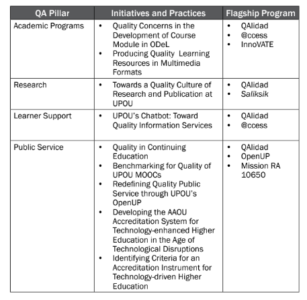
QA, in UPOU’s strategic plan, encompasses the trifunction of the university — teaching, research, and public service—including its administrative systems. Quality in one function needs to be dovetailed in another function.
The development of a QA framework is iterative. It involves documenting best practices on the ground and elevating it to the university level, and at times, designing QA mechanisms from the top and fine-tuning it at the lower levels of the university.
Given the uniqueness of UPOU as a hybrid organization (open university in a residential university system), it needed to develop a QA framework that is unique to its structure and culture. This means that while it is important to benchmark with other universities to ensure accreditation and recognition of qualifications across boundaries, QA is meaningless if it is oblivious to the context of an educational institution.
excellence, inclusivity, and quality. https://online.fliphtml5.com/
xmadt/xzbv/#p=4
Bandalaria, M. (2019). QA framework development initiatives [Presentation].
UPOU Academic Assessment and Development System (AADS)
Workshop on “Quality Assurance: A UPOU Perspective”.
Bandalaria, M. dP. (2020). QAlidad as Overarching Flagship Profram of UP Open University: From Framework to Culture. In Quality Initiatives in an Open and Distance e-Learning Institution: Towards Excellence and Equity (pp. 71-78). Los Baños, Laguna: University of the Philippines Open University
